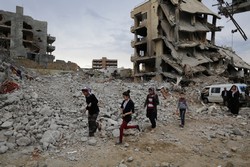Academic perspective on conflict transformation
The Middle East and Africa have seen their fair share of conflicts in recent years, from Somalia and Algeria to Iraq and Syria. The latest armed conflict in Yemen and the embargo on Qatar have added to the need to find more effective and peaceful ways of conflict resolution. The EU-funded ICELCT (Inter-continental exchange of leadership in conflict transformation) project encouraged understanding and knowledge of leadership in conflict transformation and peacebuilding. Bringing together an intercontinental consortium of academic partners from South Africa, Turkey and the United Kingdom, the project proposed conflict transformation and non-violence as pivotal political tools for societies in conflict. ICELCT worked under the premise that conflict and war emerge from an interconnected set of causal factors, the most important being ineffective political leadership and weak or repressive governments. It also examined conflict resolution processes in other fields such as business, peacebuilding, maritime issues, faith and social relations. The project was enriched with examples and case studies from South Africa, home to one of the project’s academic partners. More specifically, the project team investigated various approaches and examples related to leadership in addressing conflict. It studied how regional actors and hegemons can support stability and security by preventing or transforming conflict. The project’s work also involved studying potential developments and needs for future conflict resolution efforts, as well as non-traditional transformational approaches to conflict. In addition to encouraging research on current issues in conflict transformation, the project partners shared good practices in the field and lessons learned. ICELCT fostered the development of expert networks on the issue, enhanced by intercultural exchanges and perspectives through events, workshops and conferences. The project’s conclusions and outcomes were disseminated through various publications, papers and journals. The three universities involved also enriched their course offerings and curricula on conflict transformation and related topics. All the progress achieved within the project is bound to enrich this important field, especially since conflict transformation and peacebuilding are considered under-researched areas. The new knowledge will no doubt contribute to reducing the likelihood of violence and preventing return to open hostilities.



